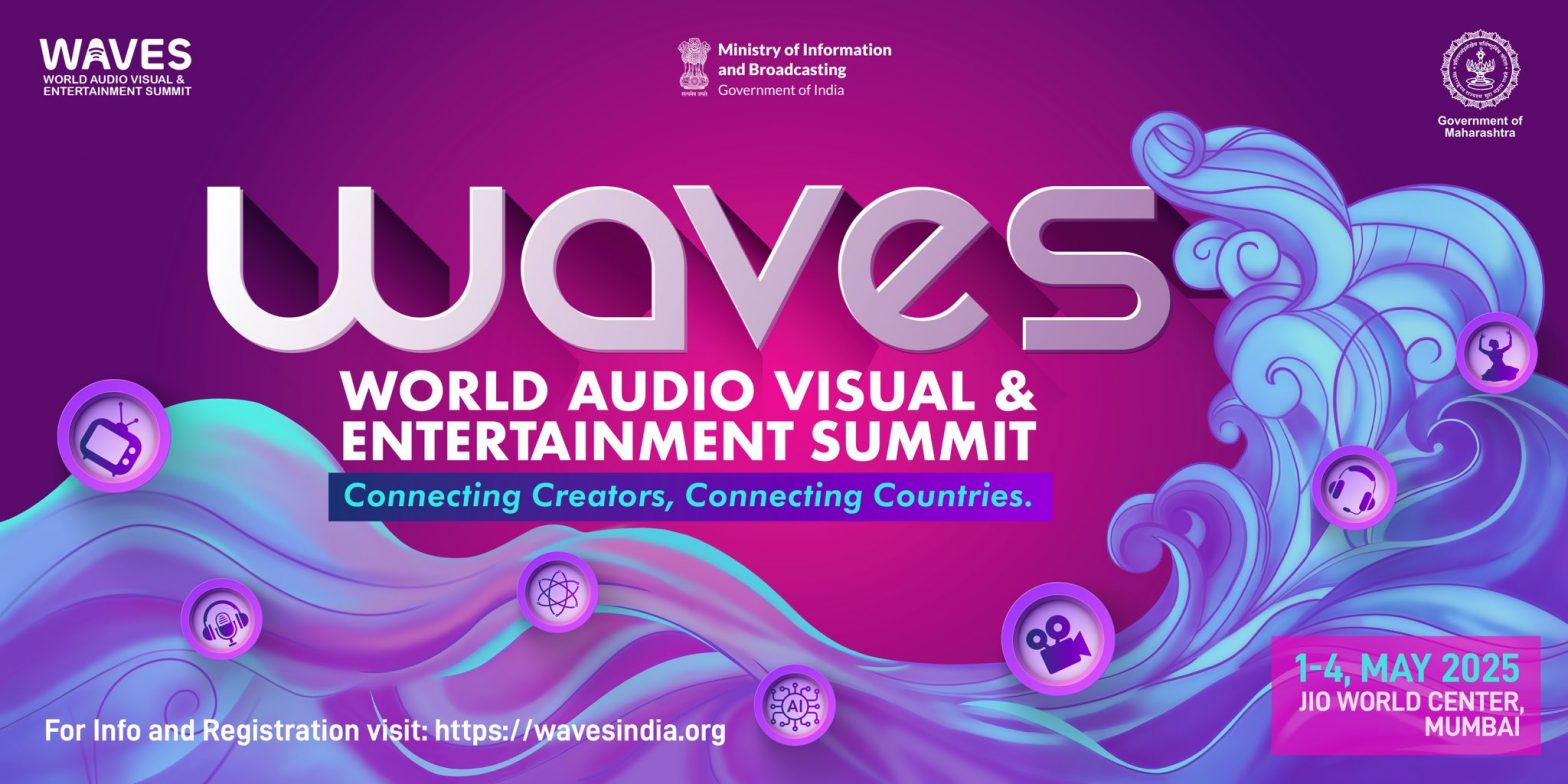As India’s media and entertainment sector hurtles toward a digital-first future, the conversation around accessibility is no longer confined to policy circles, it is becoming a cultural imperative. On May 2, WAVES 2025 – the World Audio Visual & Entertainment Summit will spotlight this urgent transformation through a landmark panel on accessibility standards in media and entertainment, organised by Network18 Group.
The session, divided into two parts, will explore both technological innovation and the socio-political forces reshaping how millions of Indians access content.
The Ministry of Information & Broadcasting (MIB) has laid clear guidelines for accessibility across broadcast and cinema, and is currently working on similar standards for digital media, inspired by the Web Content Accessibility Guidelines (WCAG). Officials emphasize that the nation’s approach is not simply about compliance, but about creating a truly inclusive digital ecosystem, one where every story can be heard, seen, and felt by all.
“Having an impairment shouldn’t mean being disabled by inaccessible media and entertainment,” said Christopher Patnoe, Google’s Head of Accessibility and Disability Inclusion for EMEA, who will join the panel. “An impairment isn’t necessarily disabling until you encounter a video without captions when you’re deaf, or a website without alternative text when you’re blind.”
At the heart of this transformation is technology. Adaptive tools, AI-powered captioning, screen reader compatibility, and voice-guided navigation are now integral to how content is created and consumed. Yet, as panelist Rachel Lowenstein, co-founder and chief creative officer of The Neu Project, notes, accessibility must be seen not as charity, but as strategy.
“Disabled people creatively solve problems in a world not designed for us every day. That’s the kind of innovative thinking media and tech should be building around, for the good of their businesses and for the good of society.”
The panel will not only showcase technological strides but also dig deeper into the cultural and societal underpinnings of accessibility. Speakers will address how inclusive media policies can serve as catalysts for democratic participation, social cohesion, and a vibrant creative economy.
“Stories shape our culture, fuel empathy, and connect us across differences,” said Dipti Prasad, founder of XL Cinema and Nobaflix, the world’s first OTT platform for people with disabilities. “By bringing accessibility, through audio description, captions, and sign language, to every screen, we enrich the creative ecosystem itself.”
India’s ambitious push for media accessibility reflects a broader global trend, but with uniquely local stakes. Over a billion Indians consume an average of three hours of media daily, according to Prof. Brij Kothari, social entrepreneur and academic at IIT-Delhi.
“The most stunning aspect is that the tools that create universal access also have the proven power to scale improved reading literacy and language ability for all 1.4 billion Indians,” Kothari said.
The panel will also grapple with the tension between viewing accessibility as a moral obligation versus a business opportunity. Ashay Sahasrabuddhe, founder of Kintel, framed it this way: “With OTTs, accessibility of content is almost achieved. As entertainment becomes more experiential, we must work towards bringing that experience to persons with disabilities. A cohesive and holistic approach may solve the conundrum of whether accessibility is a right or a business.”
For disability rights advocate, Rhodes scholar and co-founder of Mission Accessibility, Rahul Bajaj, the answer is clear. “Media accessibility ensures that people with visual and hearing disabilities are also able to watch electronic media on an equal footing with their non-disabled counterparts. It is a right which every stakeholder must do their bit to help make real.”
Indeed, many panelists argue that accessibility is as much about dignity and belonging as it is about compliance or profit.
“Accessibility in the media shouldn’t be seen as a technical fix; it’s a creative opportunity to tell fuller, richer stories,” said Priti Salian, journalist and disability inclusion advocate. “When we build access in, we also build trust and belonging.”
Danish Mahajan, founder of Radio Udaan, India’s first internet radio station run by persons with visual disabilities, puts it even more simply: “Accessibility isn’t just about inclusion, it’s about representation, empathy, and the right to experience stories that reflect the full spectrum of humanity.” He added, “conversations around accessibility open doors, shift perspectives, and create a world where no voice is left unheard.”
At WAVES 2025, this diverse and accomplished panel chaired by Storyboard18’s editor Delshad Irani, will send a powerful message: the future of media and entertainment must be one where no voice is left unheard, and every story finds its audience.
